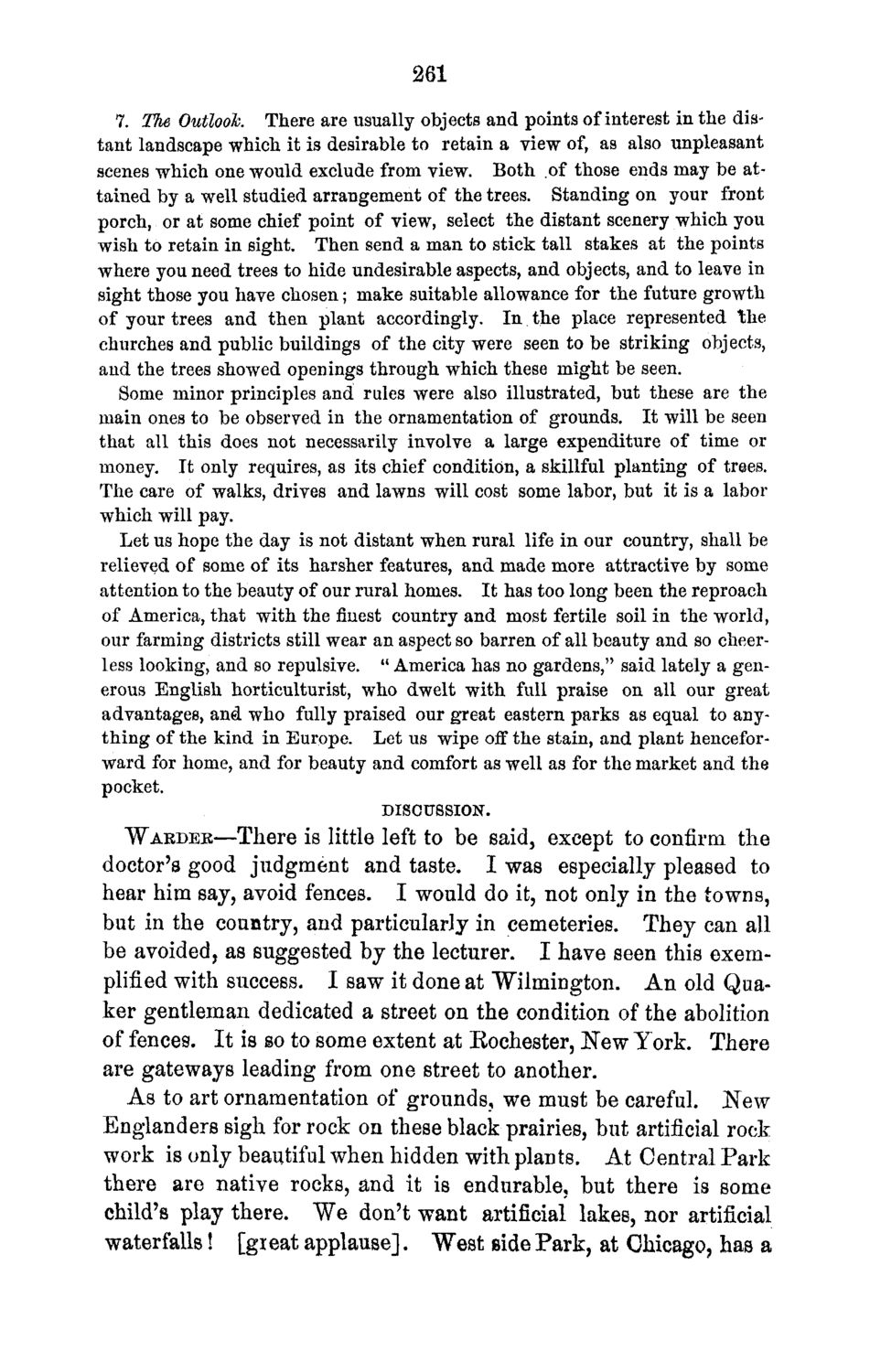| |
| |
Caption: Board of Trustees Minutes - 1870
This is a reduced-resolution page image for fast online browsing.

EXTRACTED TEXT FROM PAGE:
261 7. The Outlook. There are usually objects and points of interest in the distant landscape which it is desirable to retain a view of, as also unpleasant scenes which one would exclude from view. Both of those ends may be attained by a well studied arrangement of the trees. Standing on your front porch, or at some chief point of view, select the distant scenery which you wish to retain in sight. Then send a man to stick tall stakes at the points where you need trees to hide undesirable aspects, and objects, and to leave in sight those you have chosen; make suitable allowance for the future growth of your trees and then plant accordingly. In the place represented the churches and public buildings of the city were seen to be striking objects, and the trees showed openings through which these might be seen. Some minor principles and rules were also illustrated, but these are the main ones to be observed in the ornamentation of grounds. It will be seen that all this does not necessarily involve a large expenditure of time or money. It only requires, as its chief condition, a skillful planting of trees. The care of walks, drives and lawns will cost some labor, but it is a labor which will pay. Let us hope the day is not distant when rural life in our country, shall be relieved of some of its harsher features, and made more attractive by some attention to the beauty of our rural homes. It has too long been the reproach of America, that with the finest country and most fertile soil in the world, our farming districts still wear an aspect so barren of all beauty and so cheerless looking, and so repulsive. " America has no gardens," said lately a generous English horticulturist, who dwelt with full praise on all our great advantages, and who fully praised our great eastern parks as equal to anything of the kind in Europe. Let us wipe off the stain, and plant henceforward for home, and for beauty and comfort as well as for the market and the pocket. DISCUSSION. WARDER—There is little left to be said, except to confirm the doctor's good judgment and taste. I was especially pleased to hear him say, avoid fences. I would do it, not only in the towns, but in the country, and particularly in cemeteries. They can all be avoided, as suggested by the lecturer. I have seen this exemplified with success. I saw it done at "Wilmington. An old Quaker gentleman dedicated a street on the condition of the abolition of fences. It is so to some extent at Kochester, New York. There are gateways leading from one street to another. As to art ornamentation of grounds, we must be careful. New Englanders sigh for rock on these black prairies, but artificial rock work is only beautiful when hidden with plants. At Central Park there are native rocks, and it is endurable, but there is some child's play there. We don't want artificial lakes, nor artificial waterfalls! [great applause]. West side Park, at Chicago, has a
| |